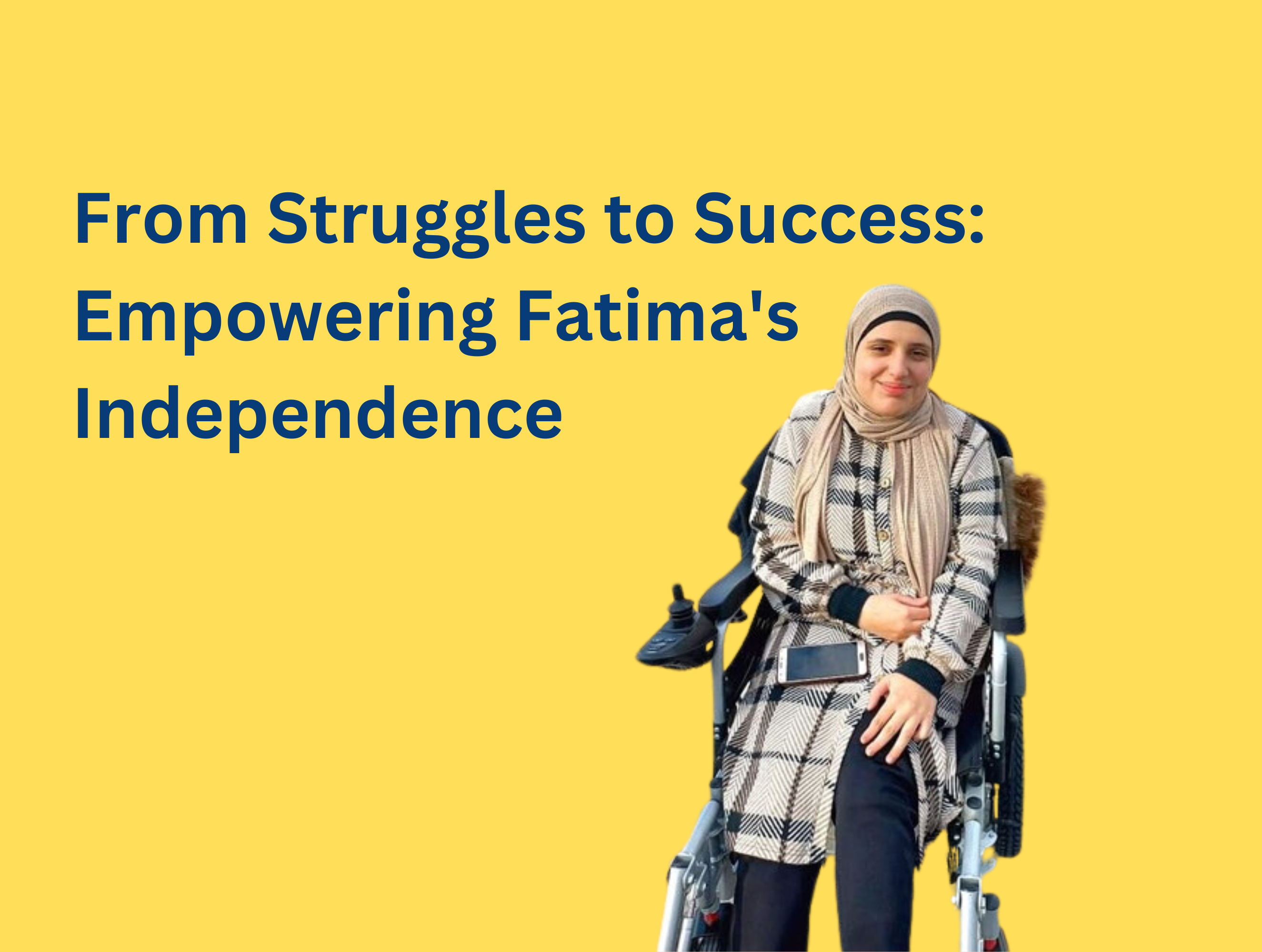From Struggles to Success
Fatima Ibrahim Abu Eid, a 19-year-old Lebanese woman, resides in Batuleh in the southern region of Tyre, Lebanon. Since birth, Fatima has been living with a triple cerebral palsy disability (lower and right hand). Despite this, she has undergone various treatments and has managed to find comfort in her daily life while operating a manual wheelchair. Recently, Fatima enrolled at Maaref University, where she is pursuing her studies in modern languages and translation. However, due to the impairment in her right hand, Fatima requires an electric wheelchair to navigate the university premises. Unfortunately, the cost of acquiring such a wheelchair surpasses the means of her family and support network.
The Tyre Focal Point of the World Rehabilitation Fund (WRF) successfully identified Fatima and presented her case into the Project funded by the United States Department of State's Bureau of Population, Refugees, and Immigration. This effort aimed to secure an electric wheelchair as a gift from the United States Government. The initiative's overarching goal is to provide motor aids, rehabilitation supplies, and electric wheelchairs across various locations in Lebanon. Moreover, the project encompasses specialized devices (S.D) designed for physiotherapy, sensory and motor support, respiratory treatment, home and institutional rehabilitation, all with the intent of promoting the inclusion and integration of individuals with disabilities.
Before receiving the electric wheelchair through the World Rehabilitation Fund's project, Fatima faced significant struggles. She was unable to move independently, leading to feelings of despair and confinement within her home. This lack of mobility prevented her from attending university and engaging in both indoor and outdoor activities without assistance.
However, the introduction of the electric wheelchair as part of the project award brought about a remarkable change in Fatima's life. She now enjoys newfound freedom and independence, allowing her to move freely and self-reliantly. This positive transformation transcends her home life and extends to her academic pursuits at the university, as well as her exploration of various outdoor locations. Fatima can now travel independently, pursue her university degree, partake in entertainment venues and parks, and actively participate in community activities with confidence.
"My life has become much easier now," Fatima expressed. "The wheelchair empowers me to rely on myself and achieve newfound independence. It enables easy movement between the university's buildings, granting access to departments such as the library, cafeteria, and playground."
Previously, Fatima had relied on her parents to assist her in moving from one place to another. This dependency hindered her ability to fully embrace her potential within the university and posed challenges given the demanding circumstances faced by her family.
Expressing gratitude and hope, Fatima concluded, "This project remarkably fulfills the needs of individuals with disabilities, fostering their independence. I also aspire to witness more comprehensive projects that address various aspects of our lives, serving as bridges towards a more promising and autonomous future."
